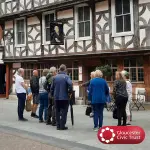“On the 29th July, a knife attack which led to the death of three children was followed by a misinformation campaign. The has lead to significant civil unrest and even riots in some towns and cities across the UK.
Some of the disruption has been felt in town centres where some organisations have been deliberately targeted due to a perceived association with immigrants and some businesses have found themselves exposed to opportunist looting.
Many police forces will offer specific advice tailored to their areas. Please refer to police advice first as it should have priority. Where no advice has been provided, feel free to consider the following issues:
1. Prevention and Preparation
Risk Assessment: Identify potential vulnerabilities and develop a contingency plan. This may include an understanding of the property exposed to attacks including hotels housing refugees and libraries.
Communication: Establish clear communication channels within staff, businesses, local authority, police, other relevant local agencies, local media and general public. In terms of responding to intelligence on live events, only use credible sources of information such as your local police force.
Security Measures: Review and enhance security measures across your town centre, such as CCTV, alarms, and physical barriers especially for smaller businesses/organisations who may not have the same investment in security measures as larger organisations.
Training: Train staff and businesses on how to respond to disturbances, including emergency procedures and evacuation plans.
Insurance: Ensure adequate business insurance coverage.
2. Incident Response
Prioritise Safety: The safety of staff, customers and other town centre users is paramount. Ensure town centre users understand how they can evacuate an area where disturbance is taking place. This may require some pre-planning with transport operators such as taxi services.
Follow Police Advice: Adhere to instructions from the police.
Document Everything: Record incidents, damages, and losses with photos and evidence.
Limit Access: Restrict access to the premises if necessary.
Protect Property: If possible, secure valuable items and protect property from damage.
3. Post-Incident Response
Report Incidents: Report incidents to the police promptly using any evidence collected.
Insurance Claims: Initiate insurance claims as soon as possible.
Business Continuity: Develop strategies to resume operations as quickly as possible. This may include clean-up operations and a communications campaign promoting an ‘open for business’ message.
Community Support: Engage with local authorities and community groups for support.
For the most accurate and up-to-date advice, it’s essential to contact your local police force. They can provide specific guidance based on your town or city centre’s location and circumstances.”







